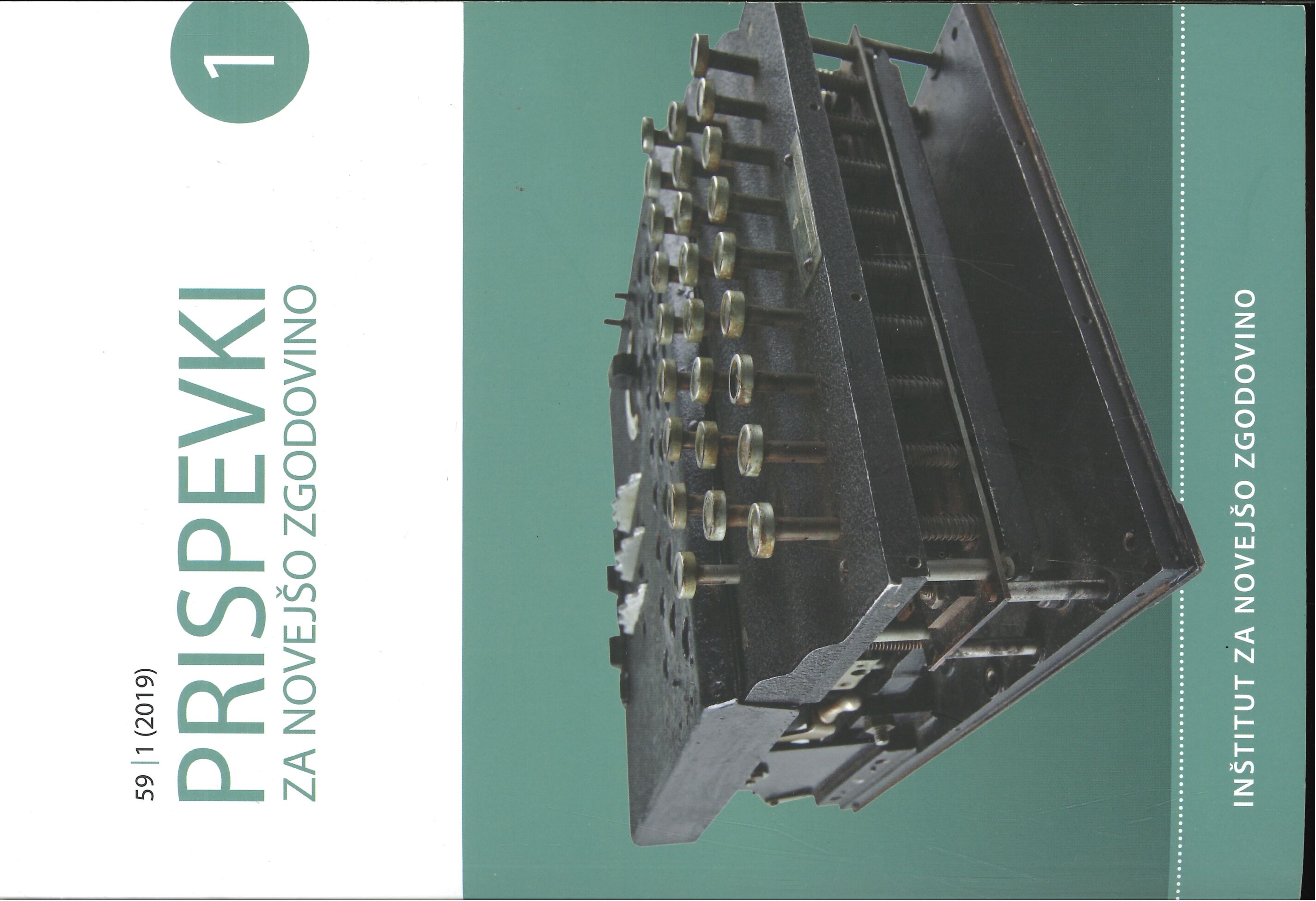You, Thou and Thee
statistična analiza uporabe izrazov zaimkovnega naslavljanja pri Shakespearu
DOI:
https://doi.org/10.51663/pnz.59.1.02Ključne besede:
izrazi zaimkovnega naslavljanja, Shakespeare, korpusno jezikoslovje, digitalna humanistika, statistično modeliranjePovzetek
Študija se ukvarja z oblikovanjem napovednega modela, namenjenega ugotavljanju, katere jezikovne in nejezikovne značilnosti vplivajo na izbiro zaimkov v Shakespearovih igrah. V angleščini, ki se je uporabljala v Shakespearovem obdobju, je razlikovanje med YOU in THOU, ki je danes arhaično, še obstajalo. Običajno se navaja, da sta ga določala relativni družbeni status ter osebna bližina govorca in naslovljenca. Vendar pa je treba še ugotoviti, ali bo statistično strojno učenje potrdilo to tradicionalno razlago. Proučuje se 23 značilnosti, izbranih z različnih jezikoslovnih področij, kot so pragmatika, sociolingvistika in analiza pogovora. Trije uporabljeni algoritmi – naivni Bayesov klasifikator, odločitveno drevo in metoda podpornih vektorjev – so izbrani kot ilustrativni nabor možnih modelov zaradi njihovih kontrastnih predpostavk in učne pristranskosti. Opravita se dve napovedi, prva o binarnem (you/thou) razlikovanju in druga o trinarnem (you/thou/thee) razlikovanju. Od vseh treh algoritmov daje najboljše rezultate metoda podpornih vektorjev. Po ugotovitvah so značilnosti, ki najbolje napovejo izbiro zaimka, besede iz neposrednega jezikovnega konteksta. Izkazalo se je, da na napoved zaimka vpliva tudi več drugih značilnosti, vključno z imenom govorca in naslovljenca, razliko v statusu ter pozitivnim ali negativnim mnenjem.
Literatura
Bate, Jonathan, and Eric Rasmussen, eds. 2007. William Shakespeare: Complete works. London: The Royal Shakespeare Company.
Brown, Roger W., and Albert Gilman. 1960. “The pronouns of power and solidarity.” In Style in language, edited by Thomas A. Sebeok, 253-76. Cambridge: MIT Press.
Busse, Beatrix. 2006. Vocative constructions in the language of Shakespeare. Amsterdam: John Benjamins.
Busse, Ulrich. 2003. “The co-occurrence of nominal and pronominal address forms in the Shakespeare Corpus: Who says thou or you to whom?”, in Diachronic perspectives on address term systems, edited by Irma Taavitsainen and Andreas H. Jucker, 193-221. Amsterdam: John Benjamins.
Busse, Ulrich. 2002. The function of linguistic variation in the Shakespeare corpus: A corpus-based study of the morpho-syntactic variability of the address pronouns and their socio-historical and pragmatic implications. Amsterdam: John Benjamins.
Calvo, Clara. 1992. “Pronouns of address and social negotiation in As You Like It.” In Language and Literature, Vol. 1(1), 5-27. London: Longman Group UK Ltd.
Greenblatt, Stephen, Walter Cohen, Jean E. Howard, and Katherine E. Maus. 1997. The Norton Shakespeare: Based on the Oxford edition. New York: W.W. Norton & Company, Inc.
Mazeland, Harrie. 2003. Inleiding in de conversatieanalyse. Bussum: Coutinho bv.
Mazzon, Gabriella. 2003. “Pronouns and nominal address in Shakespearean English: A socio-affective marking system in transition.” In Diachronic perspectives on address term systems, edited by Irma Taavitsainen and Andreas H. Jucker, 223-49. Amsterdam: John Benjamins.
Quennell, Peter, and Hamish Johnson. 2002. Who’s who in Shakespeare. London: Routledge.
Quirk, Randolph. 1974. “Shakespeare and the English language.” In The linguist and the English language, edited by R. Quirk, 46-64. London: Edward Arnold.
Stein, Dieter. 2003. “Pronomial usage in Shakespeare: Between sociolinguistics and conversation analysis.” In Diachronic perspectives on address term systems, edited by Irma Taavitsainen and Andreas H. Jucker, 251-307. Amsterdam: John Benjamins.
Taavitsainen, Irma, and Andreas H. Jucker. 2003. “Introduction.” In Diachronic perspectives on address term systems, edited by Irma Taavitsainen and Andreas H. Jucker, 1-25. Amsterdam: John Benjamins.
Thelwall, Mike, Kevan Buckley, Georgious Paltoglou, Di Cai, and Arvid Kappas. 2010. “Sentiment strength detection in short informal text.” Journal of the American Society for Information Science and Technology, 61(12): 2544-58. https://doi.org/10.1002/asi.21416.
Walker, Terry. 2003. “You and thou in Early Modern English dialogues: Patterns of usage.” In Diachronic perspectives on address term systems, edited by Irma Taavitsainen and Andreas H. Jucker, 309-42. Amsterdam: John Benjamins.
Objavljeno
Številka
Rubrika
Licenca
Avtorji prispevkov, objavljenih v tej reviji, soglašajo z naslednjimi pogoji glede avtorskih pravic:
- Avtorji ohranijo avtorske pravice, reviji pa odobrijo pravico do prve objave. Delo se hkrati zaščiti z licenco za prosto uporabo avtorskih del (Creative Commons Attribution License), ki drugim osebam omogoča deljenje dela ob priznanju avtorstva in prve objave v tej reviji.
- Avtorji lahko sklenejo ločene dodatne pogodbene dogovore za neizključno distribucijo različice dela, objavljene v reviji, (npr. oddaja v institucionalni repozitorij ali objava v knjigi) z navedbo, da je bilo delo prvič objavljeno v tej reviji.
- Pred postopkom pošiljanja in med njim lahko avtorji delo objavijo v spletu (npr. v institucionalnih repozitorijih ali na svoji spletnih strani), k čemer jih tudi spodbujamo, saj lahko to prispeva k plodnim izmenjavam ter hitrejšemu in obsežnejšemu navajanju objavljenega dela (glej The Effect of Open Access).


